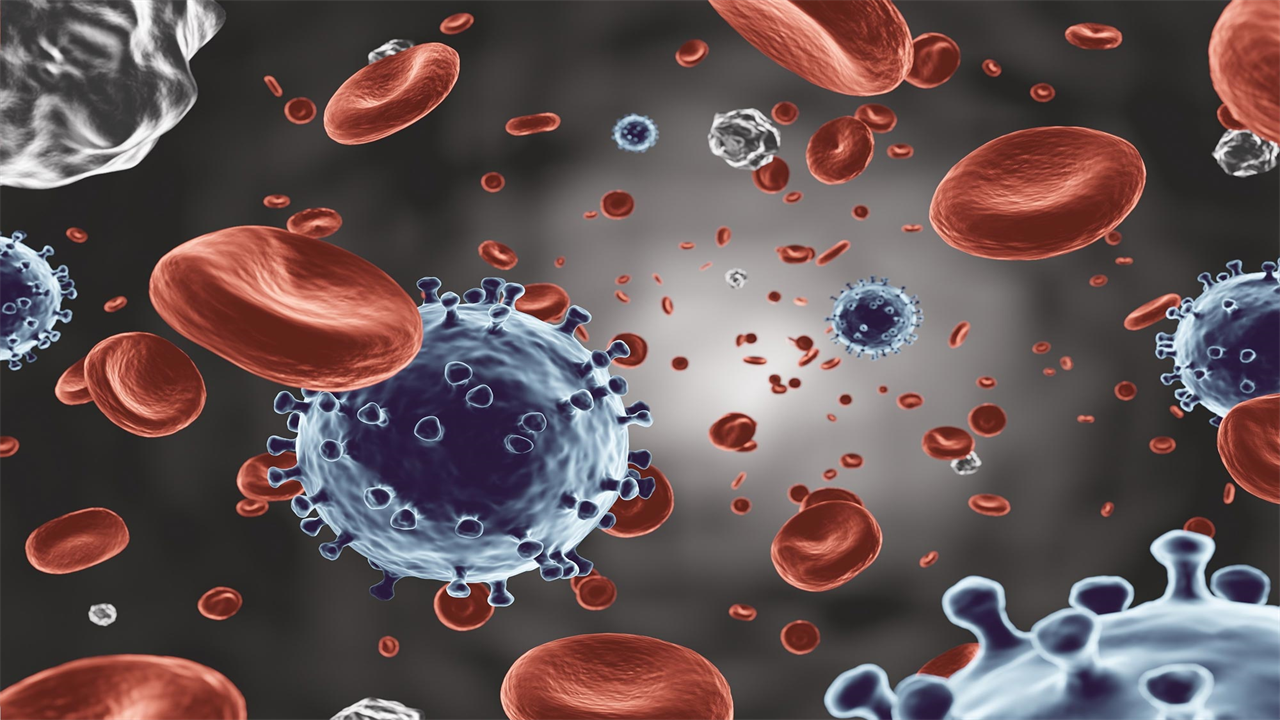New Treatment Strategies for Severe COVID-19 and Long COVID From Rheumatoid Arthritis Investigation
0 View
Share this Video
- Publish Date:
- 10 October, 2021
- Category:
- Covid
- Video License
- Standard License
- Imported From:
- Youtube
Tags

Commonalities found between COVID-19 and rheumatoid arthritis may help develop new treatment strategies for Lung Covid.
The observations of the study – published in JCI Insight and led by the University of Glasgow’s Research into Inflammatory Arthritis Center (RACE) in collaboration with the Fondazione A.Gemelli IRCCS in Italy – could help develop new treatment strategies for severe COVID-19. 19 and post-COVID-19 syndrome or Lung Covid.
The researchers noted that some rheumatoid arthritis patients who became infected with SARS-CoV-2 had “flares” of joint pain and inflammation, suggesting similarities between COVID-19 and rheumatoid arthritis.
In the study, researchers identified a specific pathogenic macrophage cluster (a group of specialized cells) in the lungs of patients with severe COVID-19 and in the joints of patients with rheumatoid arthritis (RA). Macrophages are immune cells responsible for engulfing and destroying pathogens and dying cells, but when over-activated they cause pathologies in the tissues.
Detailed molecular studies showed that these specialized cells produce a mediator called SPP1. Blood levels of this mediator are high in COVID-19 patients, and particularly high levels are predictive of patient transfer to the intensive care unit.
By examining the mechanisms of SPP1, the study found that this mediator drives multiple features of pathogenic inflammatory responses that are characteristic of severe COVID-19.
The study also provides some insight into the mechanisms of post-COVID-19 syndrome, or Lung Covid. The authors found that some COVID-19 patients who recovered and were virus negative, but with persistent symptoms, still had abnormally high blood levels of SPP1, despite normalized levels of other pro-inflammatory mediators.
dr. Mariola Kurowska-Stolarska, from the University of Glasgow, said: “Our research is promising, as understanding these mechanisms driving the hallmarks of COVID-19 could open up the prospect of new treatment strategies for severe COVID-19.
“Our research results also suggest that the pathogenic function of SPP1 could contribute to long-term COVID-19, and if so, identifies SPP1 as a potential therapeutic target for this increasingly common syndrome.”
Lucy MacDonald, RACE PhD candidate and one of the study’s first lead authors, said: “We were curious about the most likely link between joint inflammation and severe response to SARS-CoV-2 infection, which then became the focus of our research.
“By understanding this commonality, we have now identified SPP1 as a potential therapeutic target. Our aim now is to identify how SPP1-positive macrophages and their mediators may be involved in the long-COVID-19 symptom spectrum, e.g. musculoskeletal pain. Our goal is to improve the treatment of patients with COVID-19 and post-COVID-19 and for our RA patients.”
dr. Caroline Aylott, Head of Research Delivery at Versus Arthritis, says: “In both rheumatoid arthritis and COVID-19, the immune system attacks the body’s own tissues, causing inflammation and damage. This research is a step forward in understanding why inflammation persists in both rheumatoid arthritis and COVID-19 and may represent a potential target for future treatments for both conditions.
“Understanding our immune system is key to helping the 18 million people who experience the pain and fatigue associated with arthritis. Versus Arthritis research funding could unlock the prospects for future treatment, not just for arthritis, but for long-term use.” covid.
Reference: “COVID-19 and RA share SPP1 myeloid pathway driving PD-L1pos neutrophils and CD14pos monocytes” by Lucy MacDonald, Stefano Alivernini, Barbara Tolusso, Aziza Elmesmari, Domenico Somma, Simone Perniola, Annamaria Pagionico, Luca Petricca, Silvia L. Bosello, Angelo Carfì, Michela Sali, Egidio Stigliano, Antonella Cingolani, Rita Murri, Vincenzo Arena, Massimo Fantoni, Massimo Antonelli, Francesco Landi, Francesco Franceschi, Maurizio Sanguinetti, Iain B. McInnes, Charles McSharry, Antonio Gasbarrini, Thomas D. Otto, Mariola Kurowska-Stolarska and Elisa Gremese, June 18, 2021, JCI Insight.
DOI: 10.1172/jci.insight.147413
The study was funded by the Medical Research Council, Versus Arthritis UK and the Italian Ministry of Health.










